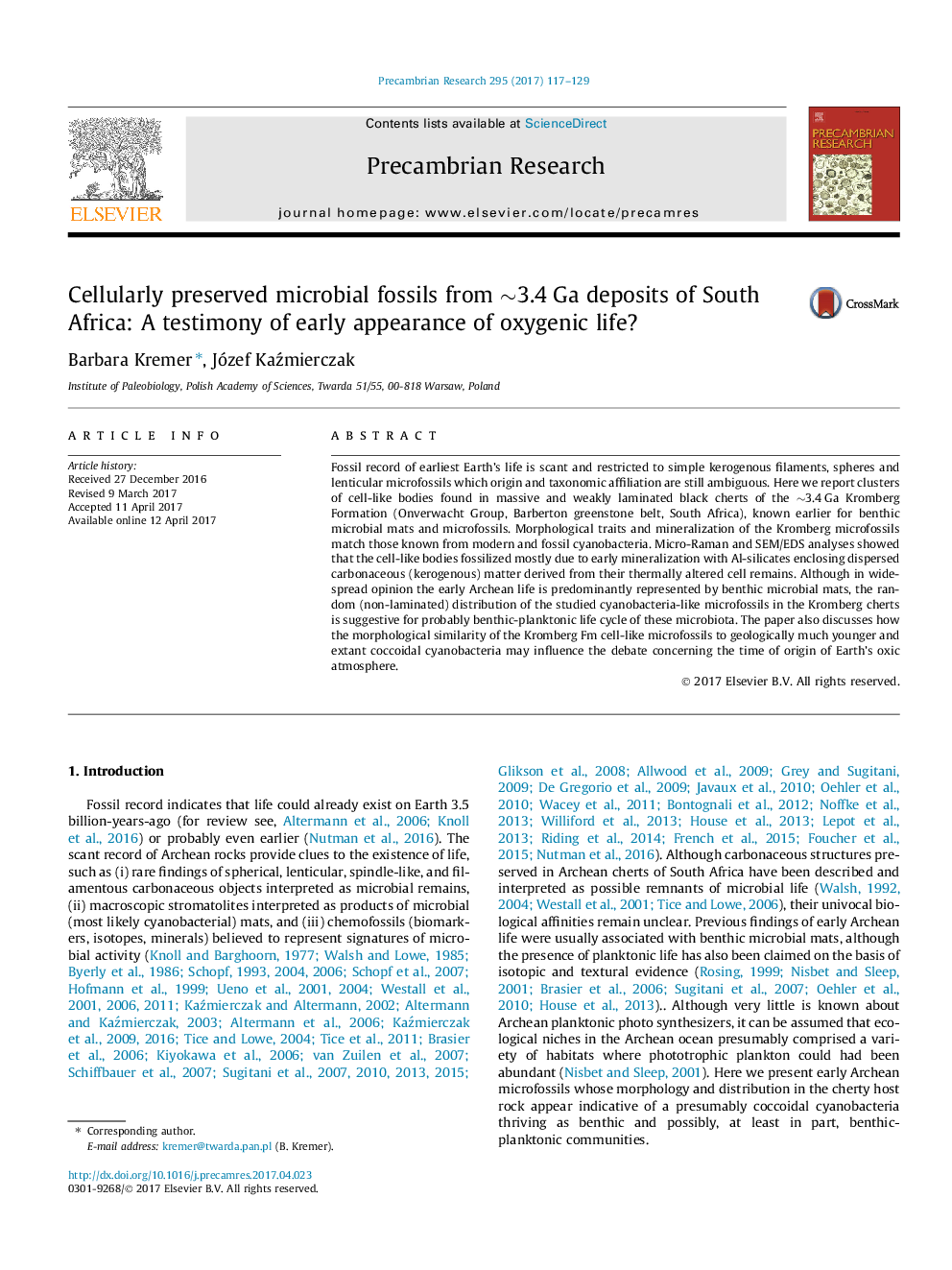| کد مقاله | کد نشریه | سال انتشار | مقاله انگلیسی | نسخه تمام متن |
|---|---|---|---|---|
| 5784828 | 1639580 | 2017 | 13 صفحه PDF | دانلود رایگان |

- Cellularly preserved microfossils have been identified in 3.4Â Ga chert of South Africa.
- Possible affinity with modern colonial coccoidal cyanobacteria (pleurocapsaleans) has been suggested.
- Possible planktonic or combined benthic-planktonic lifestyle has been proposed.
Fossil record of earliest Earth's life is scant and restricted to simple kerogenous filaments, spheres and lenticular microfossils which origin and taxonomic affiliation are still ambiguous. Here we report clusters of cell-like bodies found in massive and weakly laminated black cherts of the â¼3.4Â Ga Kromberg Formation (Onverwacht Group, Barberton greenstone belt, South Africa), known earlier for benthic microbial mats and microfossils. Morphological traits and mineralization of the Kromberg microfossils match those known from modern and fossil cyanobacteria. Micro-Raman and SEM/EDS analyses showed that the cell-like bodies fossilized mostly due to early mineralization with Al-silicates enclosing dispersed carbonaceous (kerogenous) matter derived from their thermally altered cell remains. Although in widespread opinion the early Archean life is predominantly represented by benthic microbial mats, the random (non-laminated) distribution of the studied cyanobacteria-like microfossils in the Kromberg cherts is suggestive for probably benthic-planktonic life cycle of these microbiota. The paper also discusses how the morphological similarity of the Kromberg Fm cell-like microfossils to geologically much younger and extant coccoidal cyanobacteria may influence the debate concerning the time of origin of Earth's oxic atmosphere.
Journal: Precambrian Research - Volume 295, July 2017, Pages 117-129